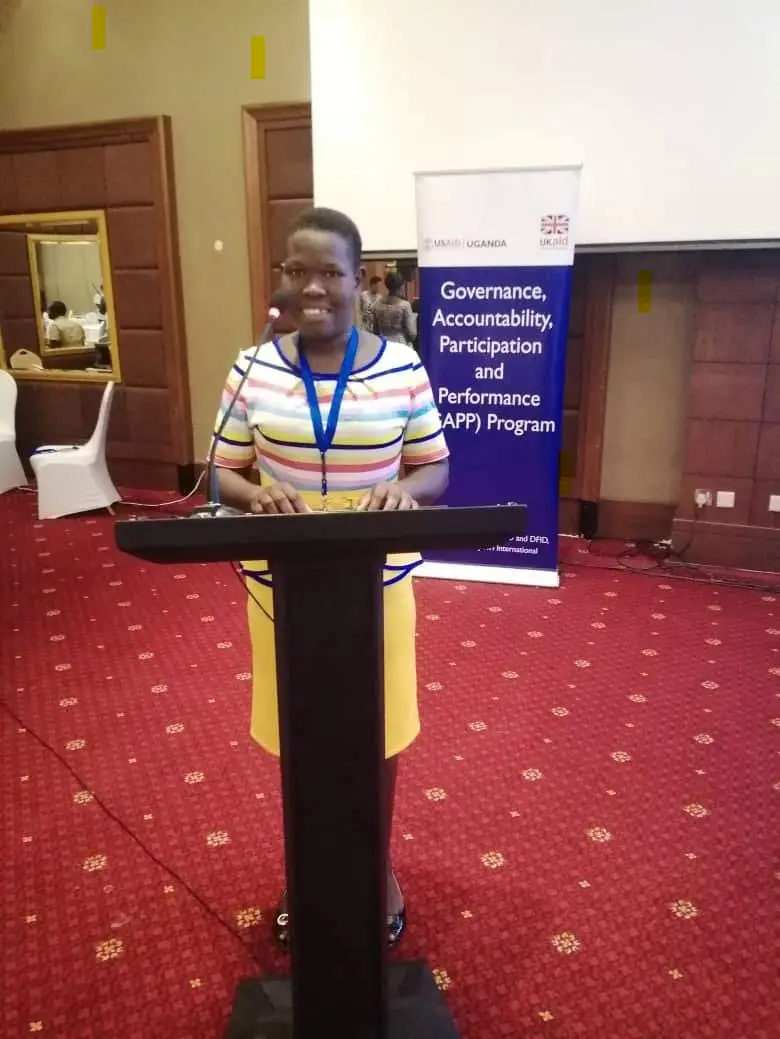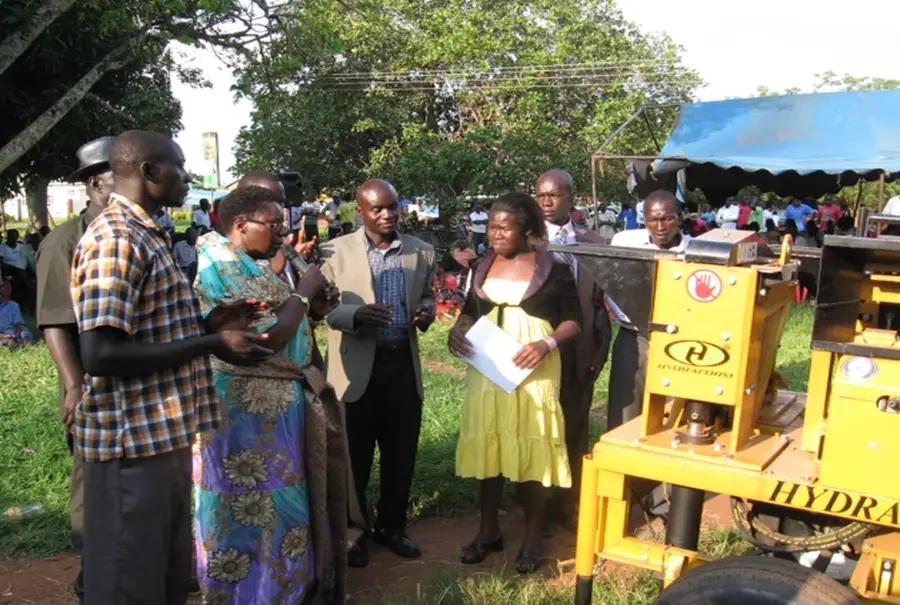This blog was written by guest author Florence Acuma, a local government official in Apac District, Uganda. Ms. Acuma participated in trainings supported by the USAID- and U.K. Government-funded Governance Accountability Participation and Performance Program (GAPP), implemented by RTI.
GAPP strengthened government accountability and local government systems across Uganda. Part of the program’s focus was empowering citizens and communities to participate in local governance. This included providing targeted training and orientation for elected officials. The program also provided grants to local civil society organizations to work on nurturing community voice, local government advocacy, and leadership development. Ms. Acuma participated in direct training from the GAPP as well as training through Uganda Womens' Network, one of the program’s grantees.
My Leadership Journey
My name is Florence Acuma. I was born in northern Uganda in a rural district called Apac. Although I had held leadership positions in the youth group I was part of, I had never considered running for political office.
My interest in political office was ignited after I attended a training by the Centre for Women in Governance encouraging female youth and women to run for political office. The training covered topics such as how to show political interest, how to fundraise and manage a campaign, and how to speak to your family about your political aspirations, among other topics. Although I attended the training, I was not seriously considering running for office at that time. However, after, I decided to test the waters by stating in a few big meetings that I was considering running for office and used the response to gauge community support.
I finally made the decision to run after the 2010 Youth Day celebrations. This was a district level event with many leaders and community members from across the district. During that event, the then outgoing youth councilor invited all the youth who are intending to contest in the 2011 elections to stand up for public introduction. Seven people, including myself, stood up. It was the feedback that I received after the event that settled the decision in my mind. I received so much encouragement from the community which greatly bolstered my confidence. I was voted as the district youth councilor in the 2011 elections, and I was re-elected in 2016. During that period, I was a youth councilor and became an active member of the women’s caucus in my second term.
I immediately realized, when I entered the office, that there was a lot I did not know. Whereas the Ugandan Constitution includes provisions to ensure inclusion, my experience is that even if these people are elected to office, without proper training on their roles and powers, and opportunities to influence change, there will be many missed opportunities. The training my colleagues and I received from the Governance Accountability Participation and Performance Program (GAPP), through the Uganda Women’s Network and the Uganda Youth Network, and Action for Development were game changers for me personally and for the youth and women leaders in my district. On a personal front, they helped me understand the power and responsibility I had as well as the influence we could have collectively as members of the youth and district women’s caucuses.
Together we influenced the district to allocate more financing for the youth budget. I also realized that we had the ability to influence financing for youth activities outside the district budget. We successfully lobbied for a Hydraform brick making machine for the youth in my district as an income generating activity to reduce the cutting of trees for brick burning.
We also learned how to provide leadership on council decisions thereby ensuring that council resolutions do not remain on paper but are followed through to implementation, and to make motions that favored issues affecting women. For example, we resolved that at least twenty women’s groups would receive agricultural support from the district budget every financial year. This is still implemented to date. We also successfully passed a motion which closed gambling shops in the district because of their impact on household incomes and children.
We learned that it was not enough to get into the council; it was also important to win leadership within the council, such as committee chairperson or council speaker, because this enhanced our influence. We learned to work across party lines for this to happen. My district is a stronghold for the Uganda People’s Congress Party; however, other women councilors voted for me to chair the Finance, Administration and Planning Committee, despite coming from the National Resistance Movement Party.
This experience has been extremely empowering for me. I was exposed to and challenged by many strong women leaders like Rebecca Kadaga, the Speaker of Parliament of Uganda, and I, in turn, have become a trainer for other women in local councils using the experiences from my now ten years in the district council and the lessons learned from these groups.
The training exposed me to the world and made me acutely aware of the need to increase my education. I had stopped school at the end of my ordinary level certificate (high school). After being in council, I realized that if I was to grow in my leadership, I needed to go back to school, finish my advanced level certificate and go to University.
I am now in my second year at Makerere University, and I am on schedule to graduate in January 2023.
I would have never walked this journey or been effective without, first, community encouragement and then the training, exposure and mentoring support of the organizations mentioned above. This is true for me and many other youth and women in political offices.


